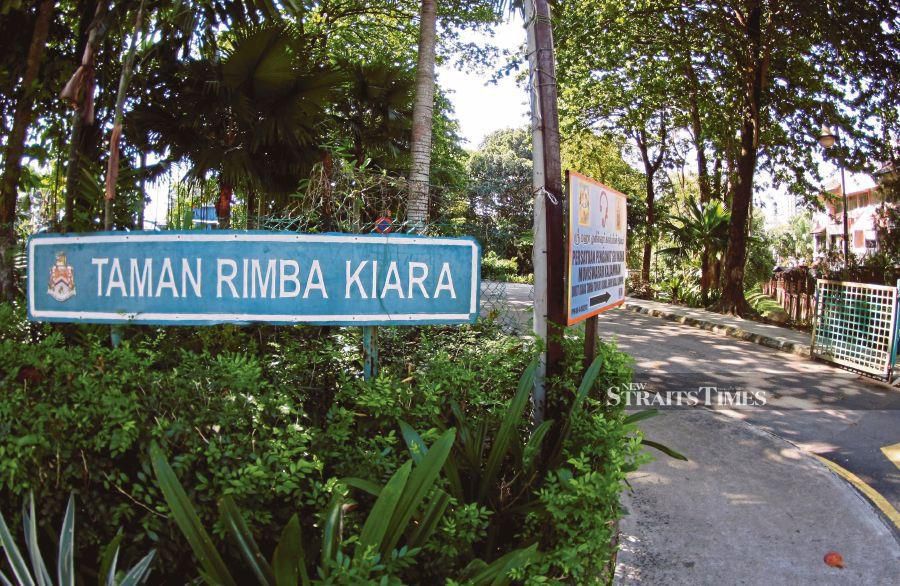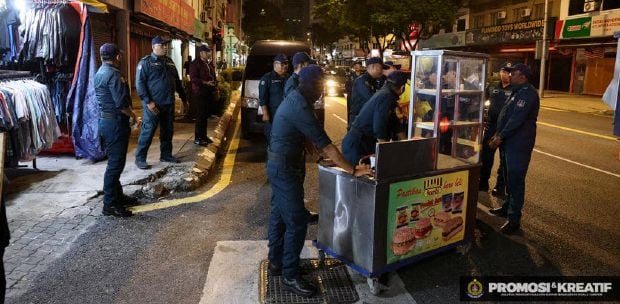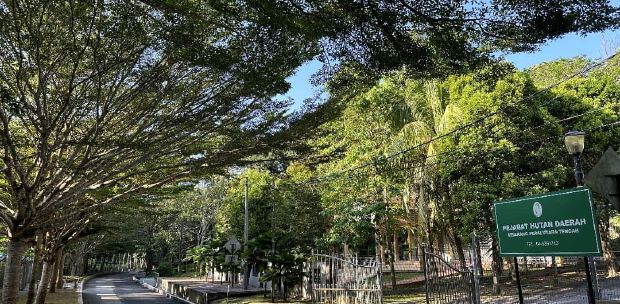A NEWS report on March 30 stated that the Federal Court had fixed June 14 to hear the applications by Kuala Lumpur City Hall (DBKL) and three others for leave to appeal in the Taman Rimba Kiara case.
If leave is granted, the apex court will then hear submissions by the opposing parties before making its final ruling on whether the development order granted in respect of the Taman Rimba Kiara project is valid, or (as held by the Court of Appeal on January 27) null and void.
On January 27, 2021, the Court of Appeal had quashed the Development Order granted by DBKL for the Taman Rimba Kiara project. In doing so, it had set aside the judgment of the High Court of November 28, 2018, which was in favour DBKL.
More than four years ago, on August, 11, 2017, ten applicants had filed a judicial review application against DBKL to quash the development order granted in respect of the Taman Rimba Kiara project.
In their judicial review application, the applicants had submitted five grounds why the development order should be quashed –
a. It is irrational, unreasonable and is not in accordance with applicable laws, rules and regulations;
b. It contravenes the KL Structure Plan and KL Local Plan in terms of land usage, zoning and density;
c. It will destroy the green lung of Taman Rimba Kiara, its eco-system and its irreplaceable natural features aside from degrading its surrounding areas;
d. It will increase the congestion and pollution levels in TTDI and Taman Rimba Kiara thus reducing the attractiveness and value of the properties in TTDI; and
e. There is a conflict of interest.
The application was dismissed by the High Court on November 28, 2018, on the following grounds (as described by Datuk Mary Lim in her judgment) –
* The applicants have no locus standi, and therefore Rule 5 of the Planning Rules do not apply;
* Act 267 and the Planning Rules do not impose a duty to give reasons, since the case does not fall under section 22(5);
* The KL Structure Plan "need no be slavisly followed", whilst the KL Locan Plan has not been gazett4ed; and
* Since the Datuk Bandar did not sit in any of the meetings in relation to the application for the development order, there is no conflict of interest.
The Court of Appeal gave careful consideration to all these grounds submitted by both sides and held as follows –
1. In regard to locus standi for judicial review, Rule 53 of the Planning Rules is not applicable;
2. Under Order 53 Rule 2(4) of the Rules of Court 2021, anyone "adversely affected" by the proposed development has a locus standi;
3. There is only one test for judicial review, and the High Court Judge had failed to apply the correct test;
4. The two threshold tests for locus standi had long been rejected;
5. The Datuk Bandar has a common law duty to notify and hear objections;
6. Unquestionably, the size and magnitude of the project will impact on the whole neighbourhood;
7. The duty to give reasons emanates from the concept of fairness;
8. The absence of express provisions (duty to give reasons) should not be a cloak to hide the rationale of the project;
9. Giving reaons without being compelled is not just grounded in fairness, but is a requirement of good administration;
10. A decision must be communicated at the time when it is made;
11. Reasons should be given at the time the decision was communicated; if reasons are not given, an applicant for judicial review is prima facie entitled to have the decision quashed;
12. The Bukit Kiara Longhouse is not a planning issue; it is a legacy or political issue;
13. The development order is disproportionate to the purported resolution of the Bukit Kiara Longhouses issue; the proposed development is a pure business and commercial joint-venture between two entities; and
14. The chronology of how the Development Order came to pass (as well as the terms of the JVA) clearly prove the existence of conflict of interest.
The Court of Appeal thus concluded there is "appealable error", and unanimously agreed to set aside the decision of the High Court. We wait and see how it ends later in the Federal Court, if leave is granted.
The writer, a former federal counsel at the Attorney-General's Chambers, is deputy chairman of the Kuala Lumpur Foundation to Criminalise War






